Porch priestess
Reclaiming ancestral roots, one backyard garden at a time
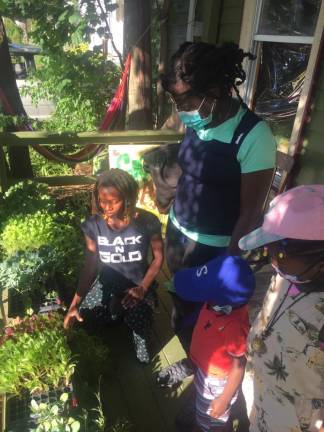
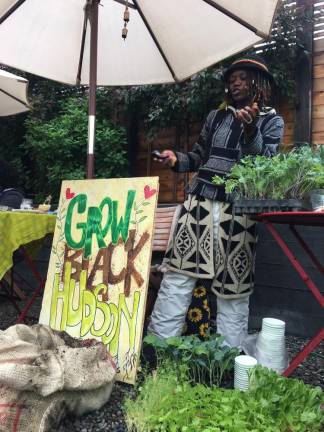
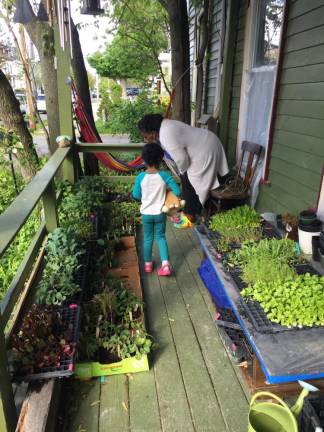
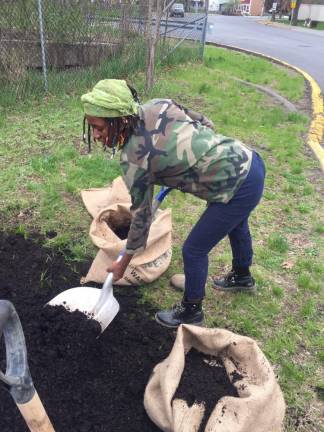
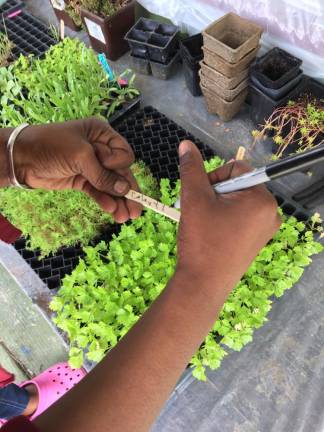
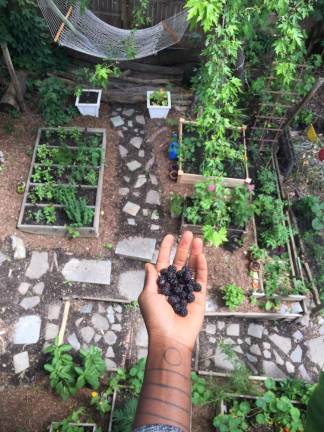
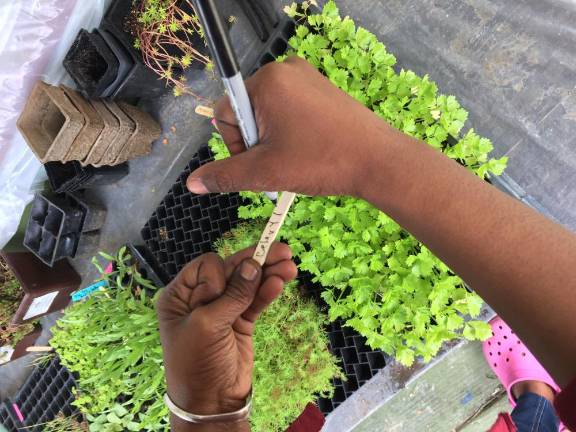
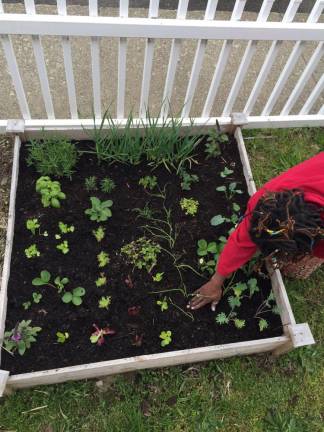
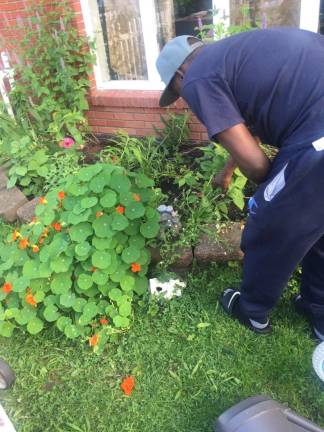
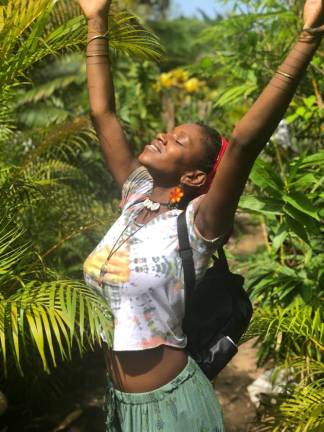
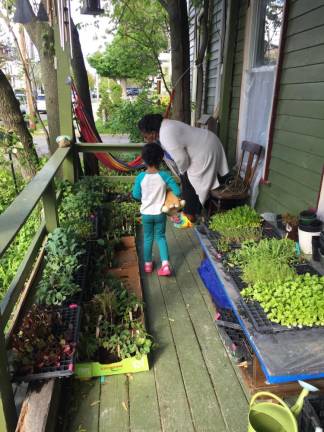
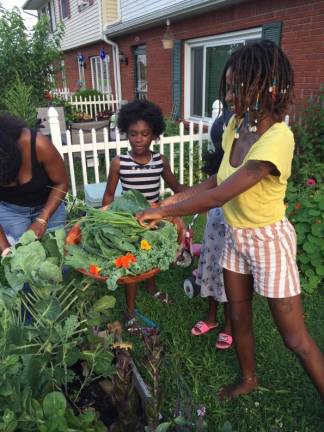
Drumming. Joyous voices. The rhythm of dancing feet.
Early last year, Hudson native Nkoula (pronounced Koola) Badila was walking near the ferry terminal in the vibrant port town of Zanzibar, Tanzania, when the sounds of performance troupe Zan Ubuntu reached her ears. Coming from a family of performers herself, she couldn’t help but be drawn toward the music.
During our first conversation, Badila and I would learn that we had a crazy Zanzibar connection. I too had heard Zan Ubuntu rehearsing at the very same spot when I visited late last year. “Yeah yeah man, that’s incredible. Wow,” says Badila, when we uncover our shared experience. That kind of uncanny connection would imbue our entire encounter.
Badila, 29, a lock-laden Congolese-American performance artist, dancer, crafter, and teacher, recently added farmer to her roster. She is the founder of Grow Black Hudson, an organization dedicated to empowering her Black and brown neighbors with the tools and knowledge to grow their own food.
The organization’s assets: Badila’s massive social capital and community connections, and a pot of seed money raised in less than a week through a GoFundMe campaign.
The game plan: Badila collects extra seedlings from local farms along with donations of lumber, soil, watering cans and whatever else she can rustle up from local businesses, to create the building blocks of backyard raised-bed gardens. And the magic all happens right on her front porch — where community members collect the plants and starter materials they need, along with some sage advice and help from Badila herself.
Badila founded Grow Black Hudson in 2020, at the start of the pandemic and the height of the Black Lives Matter movement, but its roots go much deeper. After spotting the word “Ubuntu” on Grow Black Hudson’s Instagram account, I knew there was more to this story. I was curious how this African philosophy, often translated as “I am because we are,” impacts her work as a farmer-activist.
Ubuntu is at the heart of how Badila lives, I discovered. It’s a sense of self shaped not just by the people and relationships around her, but all the animate and inanimate things as well.
“Growing up with the Congolese belief in Nzambi a Mpungu” — which translates to God is in everything — “there’s respect in everything, because there’s a possibility for everything to support you, to help you, to give you guidance, give you a message. So it’s that belief that everything, even like materials... carries energy in our life,” explained Badila. “So for Ubuntu, that also makes you see the community as something that is infinite. If I make sure y’all are good, we’re good. Yeah, like seeing us all.”
Community has been a strong influence in Badila’s life, a sensibility passed down by her parents — performers who traveled Europe and Africa in their early days, using song and dance to relay the authentic stories of Africa. Eventually settling in the Hudson Valley, Badila’s parents raised their 10 children to participate in creative community building, sharing Congolese stories, songs and dances at local community events and programs.
A deep connection to the earth and its healing properties was also an ever-present theme throughout Badila’s childhood. Experiencing the process of growing food is a medicine unto itself, as she describes it. “The healing of the plants and the magic of them, it changes your lifestyle,” said Badila.
“With the medicinal plants, it’s also been something that I’ve been grateful to have in my family growing up. My father is from Congo and central West Africa and they come from a family of medicine men and women. So they come with a lot of knowledge of the plants, even speaking to them,” she said. “They have relationships with them, they like ask permission. And when you put that energy into the plant, respect, it gives you good medicine.”
The fruit of Badila’s labors is an enduring local movement that has thrived past the heightened interest of its early days. Almost 20 backyard gardens had been established as of last season, mixed in with workshops for all ages, and more plans to establish medicinal gardens throughout the community.
Badila brought back not only inspiration and herbal knowledge from her trip to Tanzania, but also a handful of baobab seeds. “This little seed already knows what it needs to do. To be able to grow, and be prosperous and succeed, you know?”